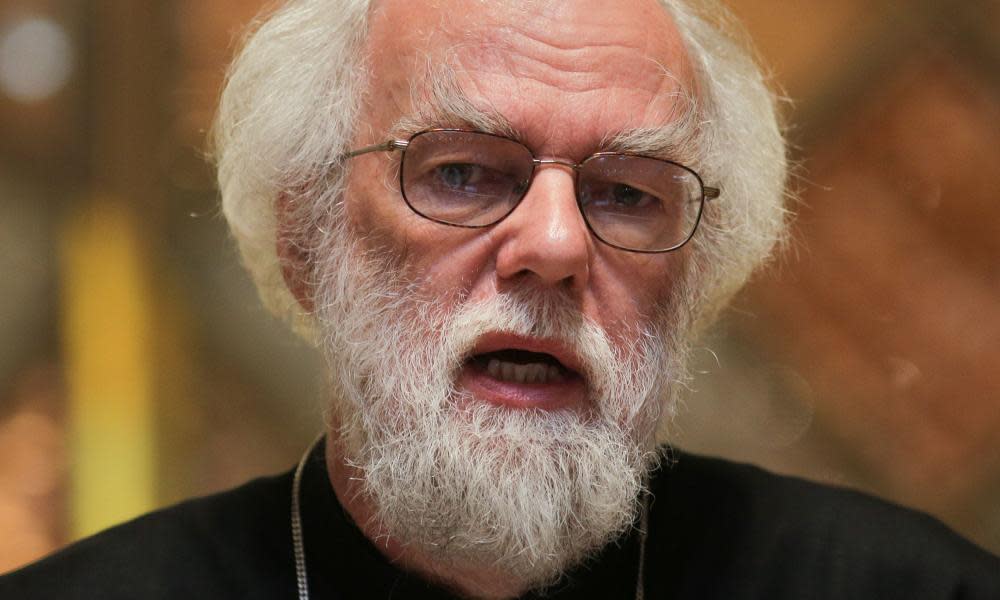Former archbishop of Canterbury defends Britain's aid budget

Rowan Williams, the former archbishop of Canterbury, has made a powerful defence of Britain’s aid budget, which he describes as a “badge of honour”, in an rare intervention during a general election campaign.
As chair of Christian Aid, Williams issued a statement on Friday amid speculation that the Conservatives will drop an existing commitment, enshrined in law, to spend 0.7% of Britain’s gross national income on aid in the party’s election manifesto.
British electors face a choice between “little Britain and global Britain”, the former archbishop said.
“Britain’s political and social landscape is in flux, and we face great choices about the soul and future of our nation. We can choose to turn inwards and struggle more and more urgently to protect ourselves; or we can look outwards, recognising that our good is bound up with that of others,” he said.
The UK’s commitment to “the world’s poorest and most vulnerable people is something to be proud of, not a political football”, he added. He acknowledged that the aid budget should not be above debate, and the effectiveness of direct aid should be scrutinised.
But, he said: “We British are known for standing up for the underdog and standing firm when things get tough … Aid is not about creating dependence but helping people become valued partners and co-workers for a safe and equitable world.
“And the continuing levels of public generosity from British people in response to successive emergency appeals shows how deeply rooted these impulses are in our national identity and our sense of responsibility to the wider world.”
Referring to the election and Brexit negotiations, he said: “As we debate the future of our country, our relationship to the EU and our new relationship with the world, we should wear our aid budget as a badge of honour that sets a standard for others to follow.”
Williams concluded by calling on the leaders of all parties to “hold firm on the promise we have made, and stand up for their belief in a bigger Britain”.
The international development bill, passed two years ago, made Britain the first G7 country to meet the UN’s spending target, set in 1970.
Since calling the election, Theresa May has dodged questions on whether her party’s manifesto will maintain the commitment. Labour believes May wants to cut the £12bn budget.
Earlier this week, billionaire philanthropist Bill Gates warned May that abandoning the pledge would reduce the country’s influence in the world and mean more lives lost in Africa.
“The big aid givers now are the US, Britain and Germany – those are the three biggest and if those three back off, a lot of the ambitious things going on with malaria, agriculture and reproductive health simply would not get done,” the Microsoft founder said.
Williams, who stepped down as archbishop of Canterbury four years ago, has criticised other government policies on moral and social justice grounds. In February, he called on the government to rethink its ending of the so-called Dubs Amendment, by which child refugees were given safe passage to Britain.
Along with other faith leaders, he publicly opposed Brexit ahead of last year’s referendum, saying the EU was vital to preserving peace, fighting poverty and tackling the migration crisis.

 Yahoo News
Yahoo News 
